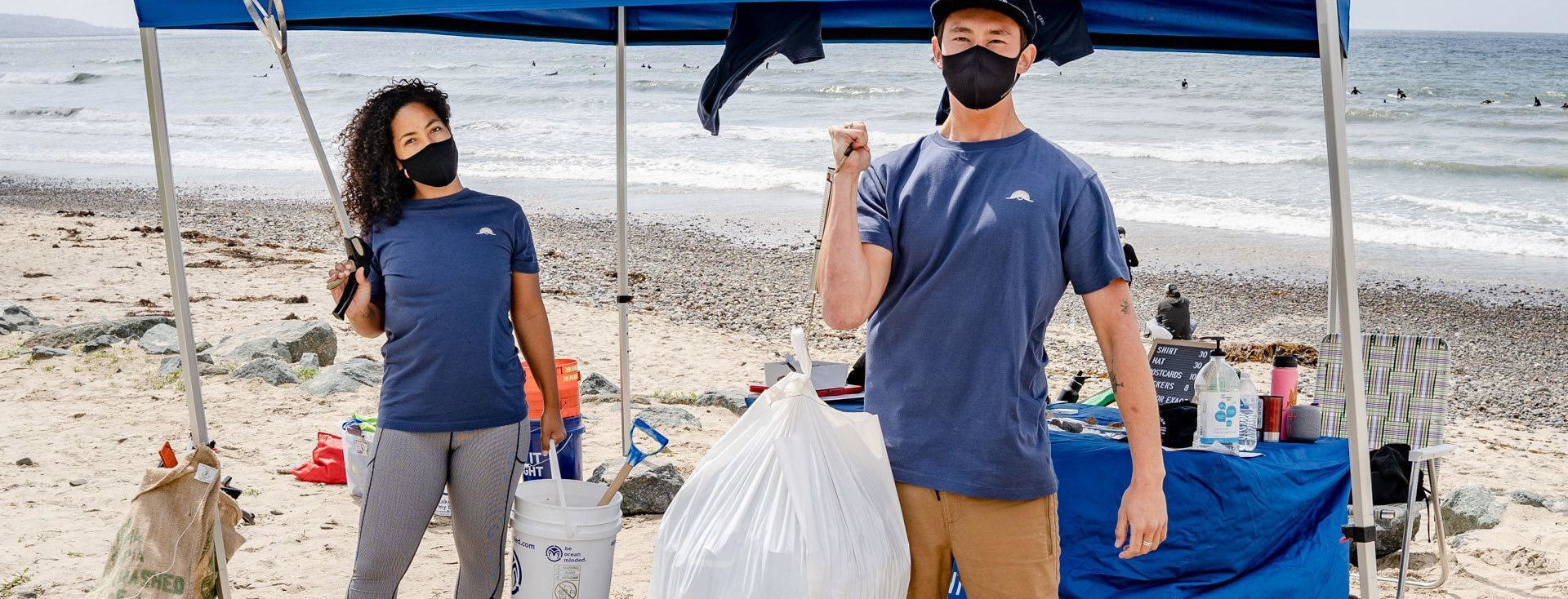
California state Senator Ben Allen, a longtime coast and ocean champion, successfully passed major anti-plastic pollution legislation through the California State Legislature today. While Senate Bill 54 (SB 54) doesn't wholly align with Surfrider Foundation's commitment to specifically banning expanded polystyrene (EPS), it does contain numerous meaningful actions that should translate into a real reduction of single-use plastic pollution in California once signed into law by Governor Gavin Newsom.
The foundation for SB 54’s success has been built over the past years and decades by grassroots activists – including Surfrider's tireless volunteers – dedicated to protecting California’s ocean and communities from the harms of plastic waste and production. (See more about our network's accomplishments to reduce plastic pollution in the just-released annual Beach Cleanup Report.)
We celebrate the great promise of SB 54 for California and beyond – and we know that more work needs to be done. Surfrider will continue pushing for a statewide comprehensive ban on EPS, ensuring that advanced plastic burning (also known as chemical recycling) is not allowed in the state and supporting our allies striving for environmental justice.
25% Single-Use Plastic Reduction by 2032
Most notably, SB 54 will require producers to reduce single-use plastic packaging and foodware by at least 25%, by both weight and unit, by 2032. At least 10% of this source reduction must be achieved by eliminating single-use plastics without replacing it with another material, with 4% of those single-use plastics eliminated through the use of reuse and refill systems. The bill also gives CalRecycle the authority to increase source reduction mandates post 2032 if there is any growth in single-use plastic packaging and foodware.
EPS Reduction
Further, EPS foodware will be banned by January 1, 2025 unless industry is able to demonstrate a 25% recycling rate for the prior year as determined by CalRecycle.
Funding for Disadvantaged, Low-Income and Rural Communities
SB 54 will protect and restore California’s lands, waters and communities most impacted by plastic pollution by:
-
Requiring producers to pay $500 million a year for ten years beginning in 2027 and sunsetting 2037 ($5 billion total) in environmental mitigation funds. Up to $150 million of those funds may be collected from plastic resin makers.
-
$300 million annually will go to address current and historical harms to disadvantaged, low-income, and rural communities from plastic production and pollution, $225 million of which must benefit residents living in disadvantaged or low-income communities.
$200 million annually will go to recover, restore, and protect the natural environment from the harms of plastic production and pollution, $100 million of which must benefit residents living in disadvantaged or low-income communities.
-
Requiring that any regulations and associated activities outlined within the Producer Responsibility Organization (PRO) plan avoid disproportionate harm to disadvantaged, low-income, and rural communities in California, as well as vulnerable communities outside the state.
-
Establishes fees to incentivize producers to shift to covered materials without heavy metals, pathogens or additives.
-
Additional Requirements
SB 54 would set California on the path towards a circular economy by ensuring that producers are held financially responsible for improving California’s recycling and composting infrastructure including:
-
Requiring that packaging producers (of all materials) take financial responsibility for the full lifecycle of their products through extended producer responsibility, with strong oversight and enforcement by CalRecycle, including directing the needs assessment and setting the baseline for the source reduction mandate.
Establishes CalRecycle’s authority to mandate additional requirements or revoke approval of the PRO if it is out of compliance, the most effective enforcement mechanism for EPR systems.
Requiring that all single-use plastic packaging and foodware actually be recyclable or compostable by 2032.
Requiring that all plastic packaging meet a 65% recycling rate by 2032 (made possible through producer investments in recycling infrastructure).
Defining recycling as maintaining materials in the circular economy, and excluding incineration, combustion or other “plastics to fuel technologies” (meaning pyrolysis and gasification) to meet required recycling rates.
-
Includes funding prohibitions to ensure that PRO fees cannot be invested in these harmful, non-circular technologies.
-
In summary, Surfrider is encouraged by the efforts that the State of California is making to reduce plastic pollution on our beaches, in our waterways, and in our ocean. Yet, much work still needs to be done. Please help support Surfrider’s efforts to eliminate plastic pollution by joining your local chapter, taking action at home and becoming a member today.
